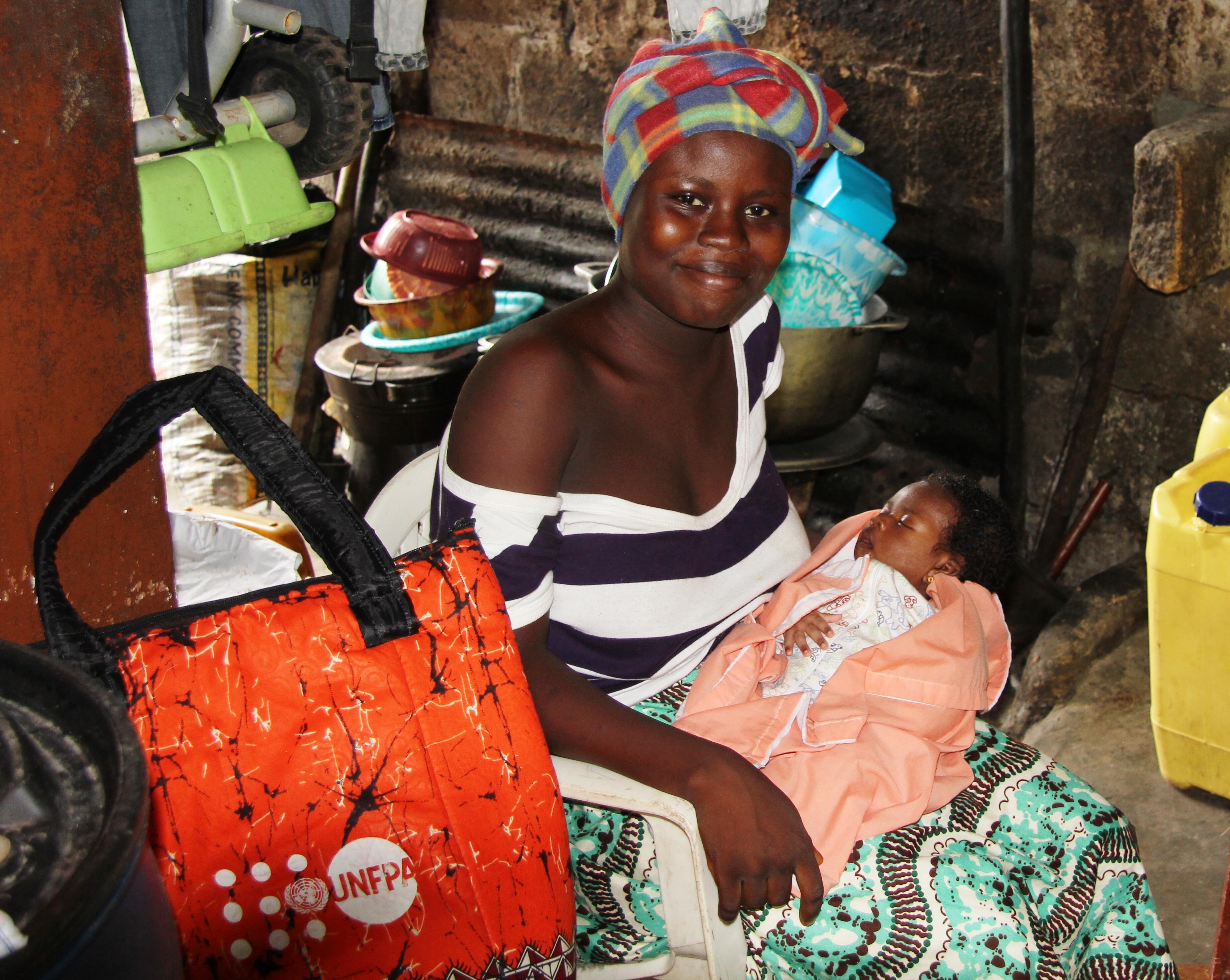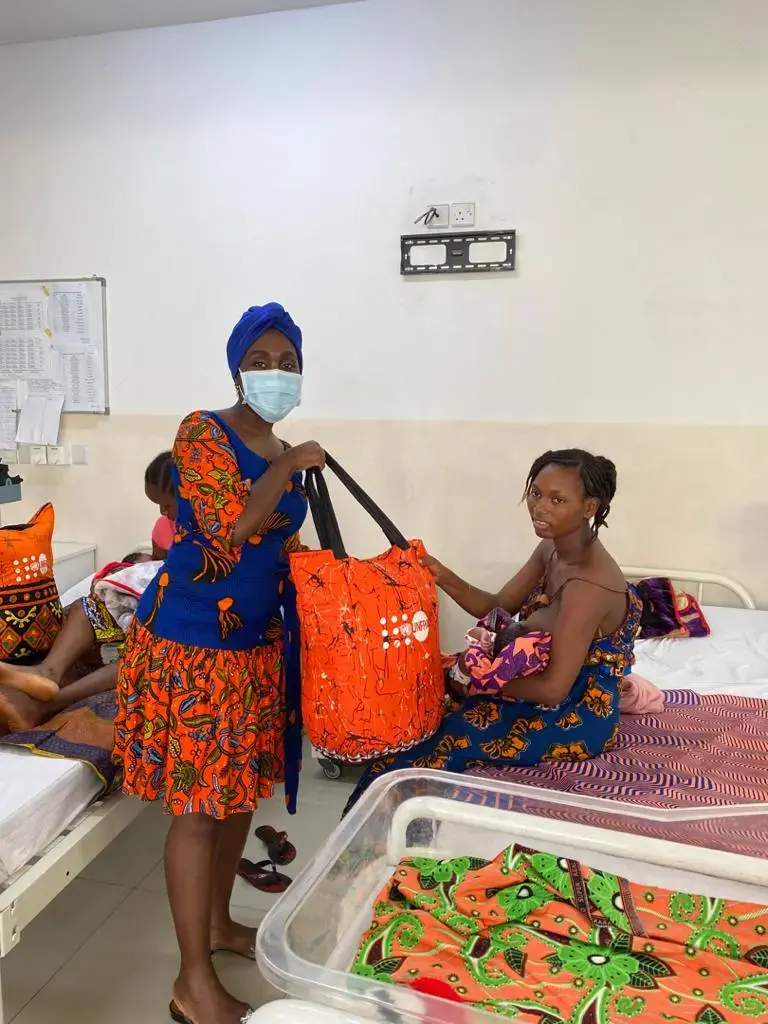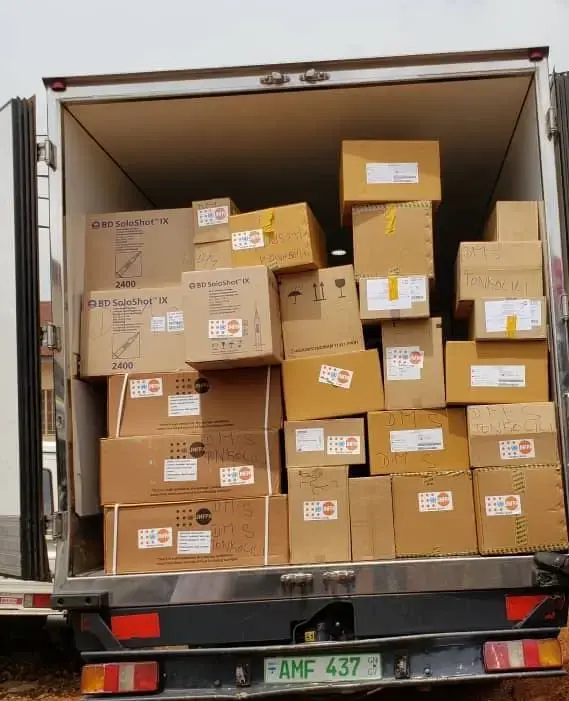Freetown, Sierra Leone: 14 July 2020. At the age of 18, Kadijatu Sesay should have been pursuing her dream of getting an education and becoming a journalist. The first of the two children of her mother, a single parent, Kadijah would normally help her mother in running the home. “I always dream of becoming a journalist to help advocate for women and society.”
This dream appeared shattered when she realized that she was pregnant. On 13 June 2020, Kadijatu gave birth to a beautiful little girl at Rokupa Government Hospital, one of two hospitals constructed by the United Nations Population Fund (UNFPA) with financial support from UK aid. Rokupa Hospital, located in the Western Urban District, serves an estimated population of 27,460 with about 6,315 women of reproductive age.
The other hospital is King Harman Maternity and Children’s Hospital. Both hospitals are part of UNFPA’s continued effort to support the Government of Sierra Leone in investing in improved access to life-saving quality maternal and newborn services. They are among a network of health facilities that UNFPA supports in providing emergency obstetric and newborn care according at recommended international standards.
Since the day Sierra Leone registered its first case of COVID-19 in March 2020 some reports indicated that women were shunning health facilities for safe deliveries for fear of contracting COVID-19.
To reassure women that maternal health services were still available and safe despite the COVID-19 pandemic, and encourage them to continue giving birth in health facilities, UNFPA in Sierra Leone with support from the Government of Iceland, launched the distribution of mama-baby bags on 2 June 2020, a campaign to encourage expecting mothers to access health facilities to safely deliver their babies.
The mama-baby bags contain hygiene and essential products for new mothers including bathing soap, washing detergent, towels, sanitary pads, hand sanitizers, face masks and underwear for the mother, as well as items for the baby such as wipes, soap and diapers.
When Kadijatu became pregnant, she received her routine antenatal care at another UNFPA-supported health facility, the Princess Christian Maternity Hospital (PCMH), and later at Rokupa Government Hospital where she gave birth.
She would sometimes walk 30 minutes to the Rokupa Hospital from home at Thunder Hill, Kissy, as she considered it cardinal to receive care from qualified health personnel. “It is dangerous to give birth at home. It is always advisable to go to the hospital and give birth. When I became pregnant, my mum told me that there are potential serious complications if one chose to give birth at home. In some cases, this may lead to death or death of the newborn baby.”
Giving birth to her first child came with mixed feelings; she was happy that she gave birth safely but was disappointed that the father of the child abandoned her when she informed him of the pregnancy. The matter was taken to the Family Support Unit of the Sierra Leone Police and the man was jailed but he was later released and has not been in touch with the family or taken responsibility since.
In an inspiring turn, this difficult experience only reinforced Kadijatu’s ambitions. “My dream of becoming a journalist is now strengthened, given my recent experience,” she says. “The dad abandoned me since I was pregnant to date. Becoming a journalist will help me advocate against such treatment.”
Kadijatu’s story is similar to her mother’s. Her mother, forty-year-old Fatmata Sesay, talks about life as the single parent of two children. “It has not been an easy ride for us,” she says, “Kadijatu’s father abandoned me when she [Kadijatu] was two years of age.” Fatmata stands behind her daughter’s desire to further her education despite the pregnancy and childbirth. “I am not strong enough financially to see her go to college. If she sits for the West Africa Senior School Certificate Examination and gets good grades, she can enrol into the police force for a start,” the mother says.
Sierra Leone has, over the years, been ranked among countries with the world’s highest maternal mortality ratio, recorded at 1,165 deaths per 100,000 live births by the 2013 Demographic and Health Survey. Maternal death is the death of a woman while pregnant or within 42 days of termination of pregnancy.
Reducing maternal and newborn deaths is a key component of UNPA’s programmes in Sierra Leone and other countries. This includes supporting the Government in transforming the health care delivery system in different ways including establishing specialized health facilities, such as Rokupa Hospital, to bring quality maternal and newborn services close to underserved families. These interventions are in line with UNFPA’s three transformative goals, in particular, the goal of achieving a world with zero preventable maternal deaths.
With 1 in 17 women facing a lifetime risk of dying during pregnancy and childbirth in Sierra Leone, Rokupa Government Hospital and other health facilities supported by UNFPA have made a positive impact in reducing maternal deaths in the communities they serve. When Kadijatu was taken to the hospital to deliver her baby, for instance, she had difficulty in giving birth and needed the help of midwives. “Had I not gone to the hospital, it would have been a different story,” she says.
Kadijatu Sesay was happy to receive a mama-baby bag from UNFPA after delivering her new baby at Rokupa Hospital. “I was extremely happy receiving these items. My mother had nothing on her financially at the time of delivering my baby in the hospital. Receiving the items was just great news for me as a new mother and it gives me every reason to encourage women to give birth in the hospital.”
Kadijatu Sesay believes every pregnant woman should go to a health facility, based on her experience. “My experience giving birth in a health facility has taught me a lot in terms of not delivering at home. I was going to have serious difficulties had I given birth at home. I will encourage other women to ensure they always go the hospital from their pregnancy period to child birth as I have experienced.”
###
About the United Nations Population Fund
UNFPA is the United Nations sexual and reproductive health agency. Our mission is to deliver a world where every pregnancy is wanted, every childbirth is safe and every young person's potential is fulfilled.
For more information, please contact:
Angelique Reid, UNFPA Sierra Leone, Communication Specialist
Email: areid@unfpa.org
John Baimba Sesay, UNFPA Sierra Leone, Web and Media Analyst
Email: jsesay@unfpa.org Tel: +232 30953193/ +23279369395




